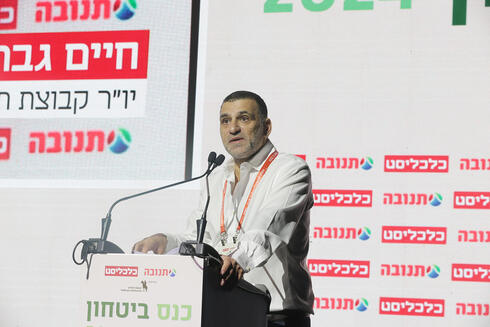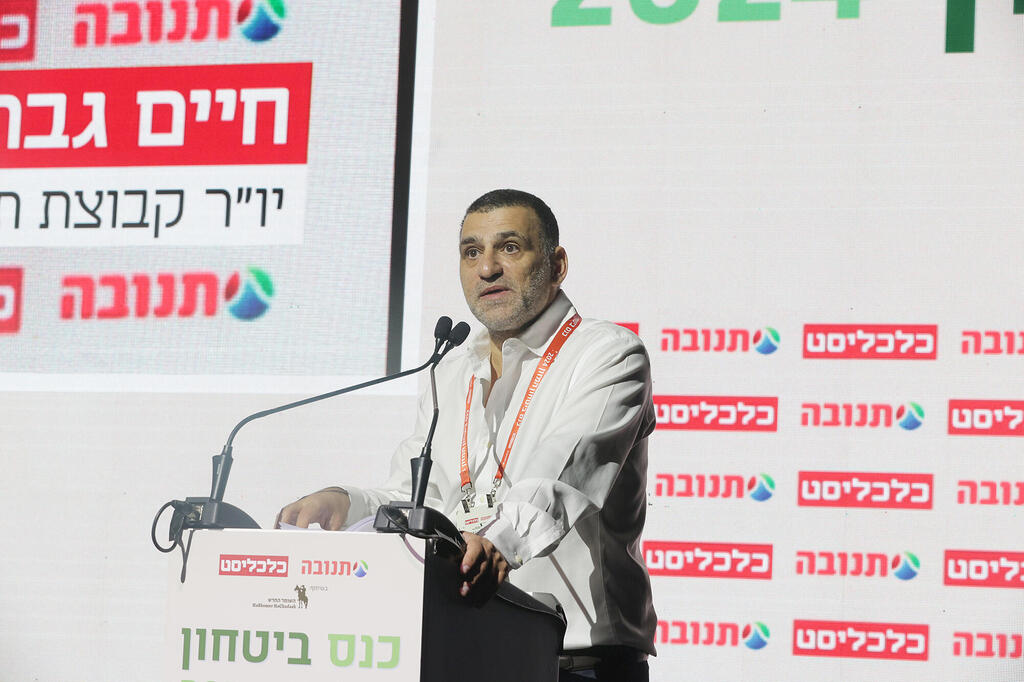
Tnuva Chairman: "The war highlighted Israel's national security Achilles heel, but it has also underscored the critical importance of food security"
Haim Gavrieli, speaking at the Food Security Conference, stressed that the state must ensure permanent supply chains and local production.
"We are at war, and we are struggling to keep up with security events. This is a war, and no one can ignore the events that occurred two days ago. I want to use this opportunity to say that Israeli society is at a boiling point. This is dangerous for our national resilience. We must not lie to ourselves. Taking the law into our own hands is a dangerous combination that leads us toward chaos and anarchy. We are in a war right now, and we must show responsibility on both sides—those who attack civilians and those who break into military bases. We are all part of Israel," said Haim Gavrieli, chairman of the Tnuva Group, at the Calcalist Food Security Conference.
Gavrieli shared a story to illustrate his point: "Who can tell me how many eggs can fit on a passenger plane? Or more precisely, in a passenger cabin? Half a million? A million? A million and a half? It sounds absurd, right? But this is a true story. Early in the COVID-19 pandemic, Tnuva's CEO came to me and said, 'We have a problem with eggs. There will be no eggs for Passover.' I thought he was joking, but he explained that there was an issue with the marine supply chain—no transport ships were available, and it would take months for eggs to arrive in Israel. I asked what we could do, and he suggested flying eggs from Ukraine. We calculated how many eggs could fit on a plane—using the belly of the plane, the overhead compartments, and even securing cartons on the passenger seats with seat belts. And so, a plane full of eggs landed in Israel instead of passengers. It sounds funny, but it highlights the enormous importance of food security in our lives. In case you're wondering, we transported 600,000 eggs."
Gavrieli continued: "So, how did we get to this point, you ask? Everyone knows that Israel is an island nation, and this absurd story illustrates Tnuva's responsibility for food security even in the absence of a systematic policy on the matter. It's clear that such an operation is not sustainable in the long term. The state must ensure permanent supply chains and local production. Now, I want to fast forward four years from our egg story to 2024. We are now over nine months into this damn war, which has unfortunately become our new normal. From the first day of the war, we witnessed the massive mobilization of civil society to support soldiers, evacuees, and the wounded. We Israelis know how to come together and help each other in times of trouble. The war has highlighted Israel's Achilles' heel in terms of national security, but it has also underscored the critical importance of food security for us."
Gavrieli emphasized the importance of food security, saying, "I'm sure you all remember that one of the most notable things at the start of the war was the mobilization to feed everyone. After October 7, many restaurants transformed into military kitchens, feeding the masses, and countless citizens volunteered to help, supply, and transport groceries and dishes, mainly to assembly areas. The volunteer effort to provide food was a natural response because food is an essential need. Food equals security. However, amid all this remarkable mobilization, there was something missing—organization from above. The absence of the state was felt, especially in areas like coordination, planning, and transportation."
Shay Cohen, Chief Innovation Officer of the Tnuva Group, added that the company "today supplies about 75% of the regulated products in Israel, thanks to massive investments in the sector. We invest in innovation and foodtech, and the key insight is that investments are needed during normal times, not just in crises. Another crucial insight is understanding the importance of securing the first barn, the first startup, and the first food factory and research institutes. If we don't ensure the continuity and security of these chains—whether in academia, agriculture, or industry—there will be no food security. We support the North through initiatives like the world's most advanced foodtech incubator, located outside Kiryat Shmona, which has been operating with remarkable determination for several months."















